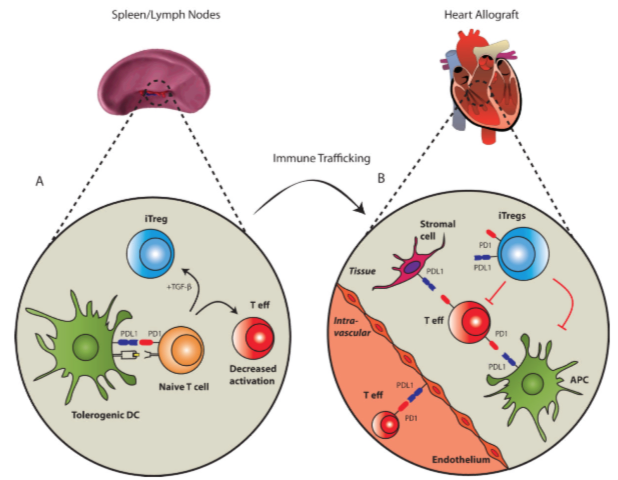Understanding immunoregulatory mechanisms is essential for the development of novel interventions to improve long-term allograft survival. Programmed death 1 (PD-1) and its ligands, PD-L1 and PD-L2, have emerged as critical inhibitory signaling pathways that regulate T cell response and maintain peripheral tolerance. PD-1 signaling inhibits alloreactive T cell activation, and can promote induced regulatory T cell development. Furthermore, the upregulation of PD-L1 on nonhematopoietic cells of the allograft may actively participate in the inhibition of immune responses and provide tissue-specific protection. In murine transplant models, this pathway has been shown to be critical for the induction and maintenance of graft tolerance. In this review, we discuss the current knowledge of the immunoregulatory functions of PD-1 and its ligands and their therapeutic potential in transplantation.
Role of the PD-1 pathway in the immune response.
Riella LV, Paterson AM, Sharpe AH, Chandraker A.
Am J Transplant. 2012 Oct;12(10):2575-87.

